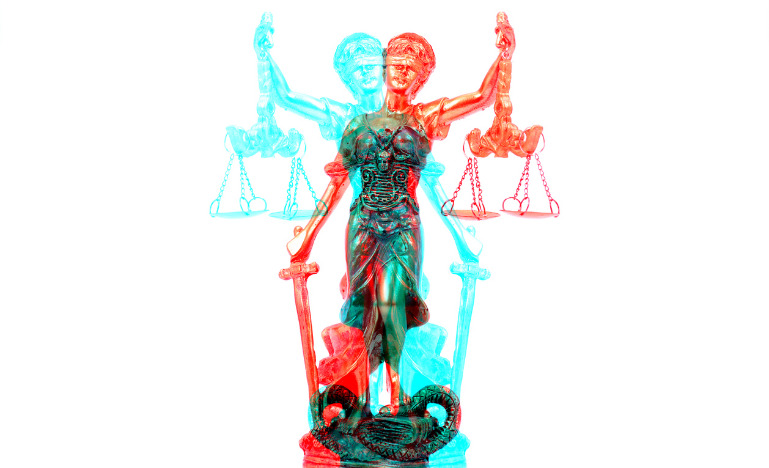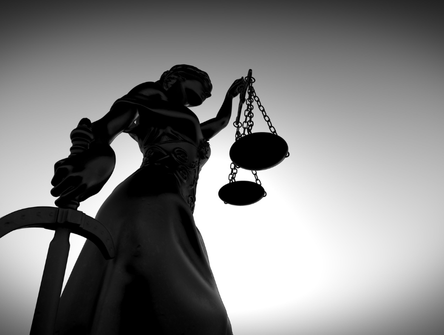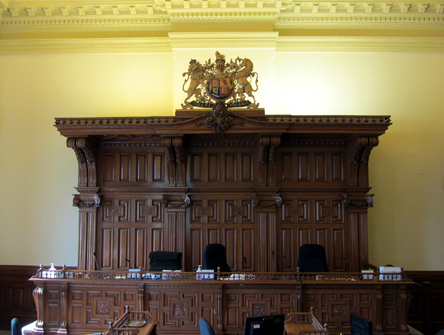Protecting judicial independence in the age of populism
Political attacks on the judiciary around the world are increasingly worrisome. Respect for the institution cannot be taken for granted in Canada.

Sometime this year — in the spring or the fall, depending on how the work goes — the Canadian Judicial Council will release its revised version of the Ethical Principles for Judges, a guideline for the judiciary that hasn’t seen an update since its first publication in 1998.
The CJC is revisiting a document written in a world before 9/11 and social media, before terrorism, climate change and the 280-character limit unleashed the forces of populism and upended politics and media alike. Arguably, it was a world where judges and politicians mostly stuck to their lanes — where the principle of judicial independence was seldom talked about, let alone questioned.
Things have changed. “If you’d asked me even ten years ago,” said Chief Justice Deborah Smith, co-chair of the committee revising the document, “whether I was worried about the public’s understanding of the importance of judicial independence, I’d have said no.
“Today? Absolutely.”
In much of the world, the principle of judicial independence never took hold. In other places, it’s under assault. In Poland, a right-wing government stacked the judicial disciplinary body with partisan functionaries. In Turkey, the regime has worked hard to politicize the justice system.
And there’s U.S. President Donald Trump — weighing in publicly on trials, trash-talking judges and jurors, demanding criminal probes of his political foes, ignoring subpoenas and generally treating the Department of Justice like a personal law firm on a limitless retainer.
Here in Canada, skirmishes over judicial independence are far more rare — but still troubling. In 2014, the office of Prime Minister Stephen Harper accused Supreme Court Chief Justice Beverley McLachlin of acting “inappropriately” in raising questions about Marc Nadon’s proposed appointment to the high court.
When an Ontario Superior Court judge pushed back at Ontario Premier Doug Ford’s plan to cut the size of Toronto’s city council, the premier called the decision “unacceptable” and threatened to invoke the notwithstanding clause. More recently, Bloc Québécois Leader Yves-François Blanchet appeared to impugn the independence of Federal Court of Appeal justices in response to their ruling on the Trans Mountain project. And the Trudeau government has been insisting the judicial appointments process remains free of political interference in the wake of news that five of the last six judges appointed in New Brunswick have personal ties to Liberal MP Dominic LeBlanc.
So it’s no coincidence that the CJC’s revision of the ethics document will include a section on “public engagement” about the role and responsibilities of judges.
Nor was it an accident when Supreme Court Chief Justice Richard Wagner recently submitted an opinion column to an Ottawa publication on the principle of judicial independence. “Judges are not politicians. Politicians are not judges,” he wrote. “We are different. We are equal. We are meant to keep each other in balance.” In a recent interview with CBA National, the Chief Justice was also careful to point out that Canada fared well compared to other nations in terms of safeguarding judicial independence, but that nothing should be taken for granted.
And Canada’s legal community isn’t about to let it come under attack without a fight.
“I do think judges have a role to play in educating the public — speaking to schools, for example,” said Fred Headon, former president of the Canadian Bar Association. When the Harper PMO went after Chief Justice McLachlin in 2014, he was one of the people publicly demanding an explanation from the government.
“These comments from politicians … are seriously crossing a line, and it’s made worse by the fact that these are people in positions of leadership. If enough of the public comes around to that view, we end up in a very scary place.
“Why would you take your case to court if you know the judge knows they’re going to be attacked for their decision in a forum where they can’t fight back? These institutions are built on credibility. Without it, they can’t work.”
Current CBA president Vivene Salmon sees an element of futility in political attacks on judicial independence. “It’s self-defeating,” she said. “If they call the impartiality of another party’s appointments into question, who will trust that their own appointees will be impartial?”
Tension between politics and the judiciary is nothing new, but the nature of the judiciary — the requirement to remain publicly impartial — typically puts it at a disadvantage when a ruling offends public opinion. After the R v. Jordan decision led to charges being dropped against individuals whose trials had been delayed past the point the Supreme Court considered reasonable, the judiciary had on its hands what any other institution might have called a PR disaster.
“People have access to far more information about what judges do now than ever before, but it’s information without context — they don’t necessarily know how the law works,” said Martine Valois, an associate professor of law at Université de Montréal.
“The Jordan case is a good example. People didn’t necessarily see the decision in the context of Charter law. They just saw criminals being released. They didn’t understand the fundamental human rights involved.”
Judicial independence rests on three pillars: financial security, tenure and administrative independence. Bill C-5, introduced in the House of Commons in early February, would require federally appointed judges to take courses on sexual assault law. The legislation is meant to prevent another Robin Camp scandal — a legitimate political goal.
But by imposing the training, the bill would threaten to compromise the administrative independence of judges. Maybe that’s not a problem when you’re instructing judges on common myths about sexual assault — but it might be if future governments use the precedent as an opening to start giving judges broader direction on how to interpret the law.
“I’m not a subscriber to slippery-slope arguments in general,” said Justice Thomas Heeney, president of the Canadian Superior Courts Judges Association. “But perhaps it would be easier to infringe on judicial independence once the precedent has been set.”
“Today it’s sexual assault. Might a future government task judges with accepting, say, training on migrants and border security, because that’s their policy priority?” said Gib van Ert, an Ottawa lawyer who wrote a piece for Maclean’s magazine questioning the wisdom of passing C-5.
“Once the precedent has been set, you open the door to that sort of thing — and before you know it, the way we appoint judges in this country has fundamentally changed.”
Van Ert suggests defence counsel could even weaponize a law mandating specific training for judges. “You can’t exclude the possibility that some defence lawyer is going to point to government-mandated training and argue bias,” he said. “Judges themselves may come to be seen as less independent if governments get into the habit of treating them like civil servants.”
“When someone outside the judiciary is telling judges what to think, that’s a problem,” says Justice Smith. “Once governments start telling judges who is responsible for educating them and how, we have a problem.”
Could Canada’s judges someday find themselves sharing the plight of their American cousins — constantly under attack from political actors who disdain the very notion of impartiality? That might be one slippery slope argument too far: many trial judges are elected in the U.S. They can even be fired through citizen recall votes — so some degree of political influence is baked into the system.
Justice Heeney is confident things won’t get that bad here. “Our politicians tend to be very diligent in avoiding overt criticism of court decisions,” he said. “This populist mentality does seem to be encouraging these inappropriate comments. The behaviour of certain politicians in other countries threatens to normalize it.
“But I believe our institutions in this country are strong enough to resist it.”


